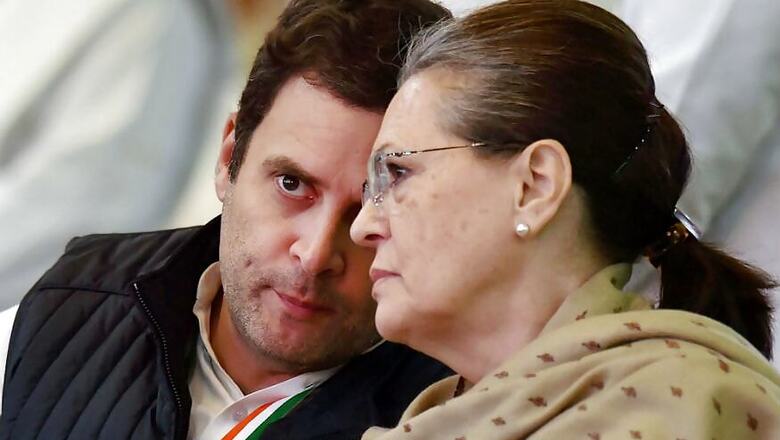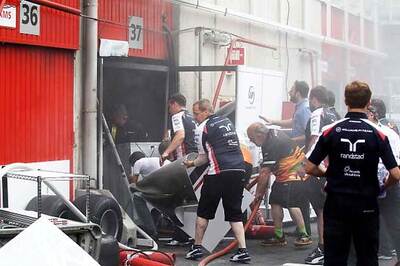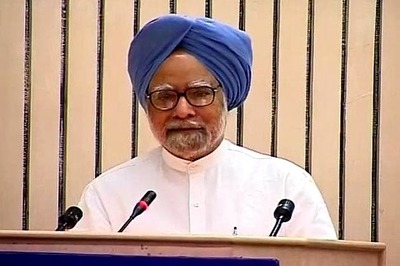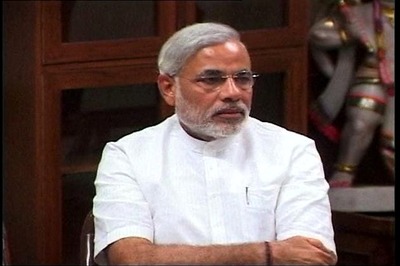
views
Lucknow: Taking a cue from Uttar Pradesh bypoll results, the Opposition may tweak its electoral strategy to knit state-specific alliances for 2019 Lok Sabha elections instead of building a grand national coalition against the Bharatiya Janata Party (BJP).
The SP-BSP experiment could serve as the template for the anti-BJP mobilisation in the days ahead, prompting opposition parties to de-centralise Lok Sabha elections to avoid a direct 'Modi Vs Others' contest which tends to suit the BJP.
The signs of the changing algorithm were apparent in the understanding reached between the Samajwadi Party, BSP and the Congress in the last one month.
In the Gorakhpur and Phulpur bypolls in Uttar Pradesh, while the SP-BSP joined hands to take on the BJP, the Congress fielded its candidates in both seats to dent the saffron party’s prospects in the urban and upper caste constituency. The decision to field candidates is borne out of empirical evidence in the last Assembly elections indicating the BJP benefitting from the Congress' absence since the two parties share mutually inclusive voters.
Interestingly, a week later, the Congress lent its support to the BSP in the Rajya Sabha elections in lieu of help rendered in Madhya Pradesh to bag an Upper House nomination.
This change in opposition strategy is based on renewed assessment of the political landscape. A 'presidential campaign' reminiscent of the 2014 elections tends to suit the BJP, which has a strong leader with a pan-India appeal in Prime Minister Narendra Modi.
A ‘Modi vs Others’ fight at the national level can easily help the BJP gloss over anti-incumbency in states where the party is in power. Secondly, a direct contest — to the advantage of the BJP — has a high probability of engendering a polarised polity.
A spurt of activities in parties not seen to be inimical to the BJP till recently has also set the cat among the pigeons. Calls to build a national coalition against the BJP have come from some unexpected quarters. Some of these parties do not have the BJP as the main challenger in their respective states.
It was interesting to note three absentees from Congress president Sonia Gandhi's dinner in Delhi for opposition leaders earlier this month — the Telangana Rashtra Samiti (TRS), Telugu Desam Party (TDP) and the Biju Janata Dal (BJD).
With its political footprint shrinking in the east and the south, the Congress may also approach the elections by building social coalitions where it is a marginal player while relying relatively more on regional satraps to challenge the NDA in their own respective bastions.
In fact, the BJP's tally in Lok Sabha polls will depend largely on Congress' ability to wrest back seats where the party is in direct contest with the BJP.
After a prolonged intra-party debate, Kerala CPM state secretary K Balakrishnan has indicated the party's willingness to help others, including the Congress, to keep BJP out. The party mouthpiece in its latest edition has also ruled out any possibility of a pre-poll grand alliance ahead of 2019.
The idea, it seems, is to break the elections down to smaller battles at provincial levels to restrict the BJP and provide little political space to manoeuvre. The lesson from Tripura recently is loud and clear — a strong Congress in the state would have helped the CPM. A defeat at the hands of the BJP means conceding the constituency to the NDA. A loss at the hands of the Congress does not necessarily imply that.




















Comments
0 comment